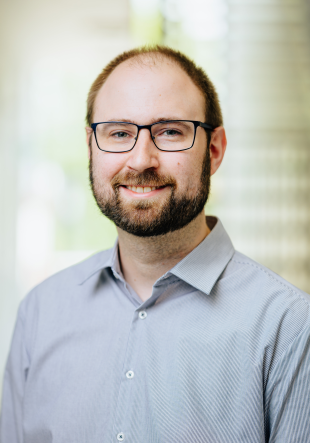Master degree programme in Physics
In the master's program in physics, advanced mathematical-scientific knowledge and an overview of the interrelationships within physics as well as knowledge in a special field that is compatible with current international research should be acquired so that complex physical problems and tasks can be analyzed, formulated and also largely solved on a scientific basis. In particular, the capability should be acquired to familiarize oneself with any special field of physics, to research the current international specialist literature for this purpose, to plan, carry out and interpret experiments independently to solve problems or to model and simulate independently on the basis of theoretical principles.
General Physics
The general master's program in physics offers an in-depth insight into scientific and technical knowledge and work. At the end of the program, you will be well equipped for research and industry! The master's program also impresses with its variability, where you can choose many courses according to your own interests.
The study program consists of a first section, in which you take part in lectures (specialist in-depth phase), and a second section, which introduces you to independent research activities in the field of physics within the framework of a comprehensive master's thesis (research phase). You will work on scientific projects in the various working groups and experience cutting-edge research first-hand!
Quantum Photonic Technologies
Photonic quantum technologies are one of the most promising subfields of physics and electrical engineering/computer science. With the Quantum Photonic Technologies concentration, you will be trained specifically in this area without losing sight of general physics. The concentration is based on the general physics master's program, but includes a specially tailored selection of elective courses that specifically prepare you for research and development of photonic quantum systems.
Specifically, you must take the lecture "Quantum Optics" in the experimental physics area, the lecture "Quantum Information Theory" in the theoretical physics area, and "Introduction to Quantum Computing" as a lecture in the emphasis area. In addition, one of the following courses must be chosen in the area of specialization: "Quantum Electronics", "Integrated Optics & Photonics" or "Experimental Quantum Communication & Information".
Optoelectronics, Materials, Devices
Optoelectronic components have been an indispensable part of modern technology for many years. However, the potential of optoelectronics is far from exhausted - optoelectronic components play a central role in the field of quantum computing as well as in communication and also, for example, in modern solar cells. This specialization prepares you specifically for the production and characterization of semiconductor components, all on the basis of a sound education in physics.
In the Optoelectronics, Materials, Devices specialization, you will attend the lecture “Optoelectronic Semiconductor Devices” as one specialization; in the second specialization, you can choose between “Computational Optoelectronics and Photonics” and “Integrated Optics and Photonics”. In the field of experimental physics, you must attend one of the lectures “Physics and Technology of Nanomaterials” and “Semiconductor Heterostructures: Fundamentals and Applications” and additionally attend either the lecture ‘Nonlinear Optics’ or the ‘Lab Course’.
Overview of the compulsory elective courses
- Atomistic Materials Modeling
- Computational Optoelectronics and Photonics I
- Computational Optoelectronics and Photonics II
- Integrated Optics and Photonics
- Ion Beam Analysis
- Microskopy and Spectroskopy with Electrons
- Photonic Nanostructures
- Quantum Electronics
- Quantum Communication and Information (German)
- Spintronik (German)
- Computational Spectroskopy (German)
- Semiconductor Epitaxy
- Optoelectronic Seminconductor Devices
- Introduction to Quantum Computation
- Data Science for dynamical Systems

